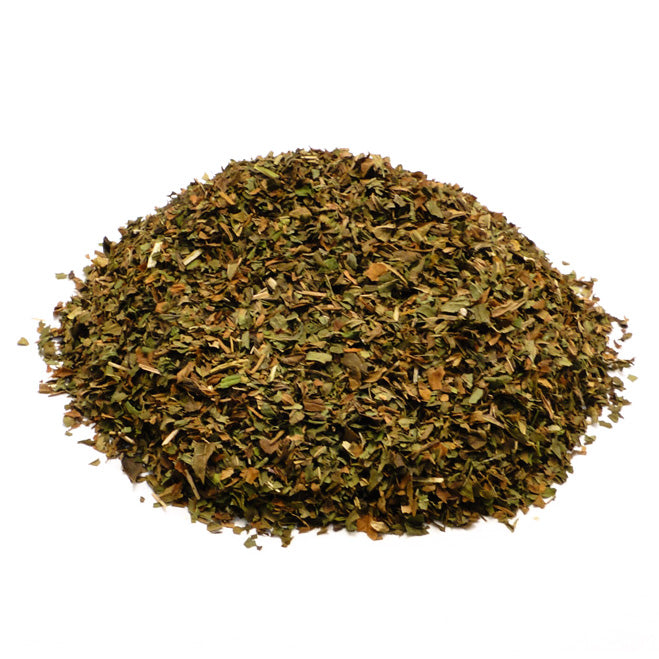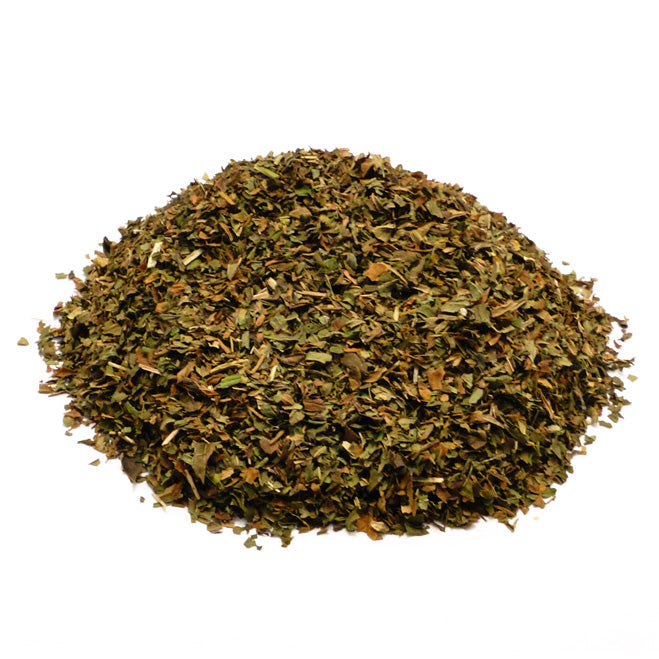Peppermint
Peppermint
Couldn't load pickup availability
The Benefits and Uses of Peppermint: Nature's Refreshing Herb
Introduction
Peppermint (Mentha × piperita) is a popular herb known for its distinct flavor and aroma, widely used in culinary, medicinal, and aromatic applications. A hybrid of watermint and spearmint, peppermint has a rich history that dates back thousands of years. In this post, we’ll explore the various benefits, uses, and potential side effects of this versatile herb.
Characteristics of Peppermint
Peppermint is characterized by its dark green leaves and purple stems, which release a refreshing, cool scent when crushed. The essential oil extracted from peppermint leaves contains menthol, the compound responsible for its distinctive flavor and many of its health benefits.
Culinary Uses
-
Flavoring Agent: Peppermint is commonly used in desserts, candies, teas, and beverages. Its refreshing taste adds a delightful twist to chocolate, ice cream, and cocktails.
-
Herbal Teas: Peppermint tea is a popular choice for its soothing properties. It can be enjoyed hot or cold and is often combined with other herbs for added flavor.
-
Savory Dishes: Peppermint can also be used in savory dishes, such as salads, sauces, and marinades, providing a unique flavor profile.
Medicinal Benefits
Peppermint has been used for centuries in traditional medicine, and modern research supports many of its health benefits:
-
Digestive Health: Peppermint is well-known for its ability to alleviate digestive issues. It can help relieve symptoms of irritable bowel syndrome (IBS), bloating, and indigestion by relaxing the muscles of the gastrointestinal tract.
-
Relief from Headaches: The cooling effect of menthol can help reduce headache symptoms. Applying diluted peppermint oil to the temples may provide relief from tension headaches and migraines.
-
Respiratory Relief: Inhalation of peppermint oil can help clear nasal congestion and ease symptoms of colds and allergies. It acts as a natural decongestant and can provide a soothing effect on the throat.
-
Antimicrobial Properties: Peppermint exhibits antimicrobial properties that can help combat certain bacteria and fungi, making it beneficial for oral health and wound care.
-
Stress and Anxiety Relief: The aroma of peppermint has calming effects that may help reduce stress and anxiety. Aromatherapy using peppermint oil can promote relaxation and mental clarity.
Essential Oil Uses
Peppermint essential oil is a versatile product with various applications:
- Aromatherapy: Diffusing peppermint oil can uplift your mood and enhance focus.
- Topical Application: Diluted peppermint oil can be applied to the skin for relief from muscle pain or headaches.
- Insect Repellent: The scent of peppermint can deter insects, making it useful for natural pest control.
Safety Considerations
While peppermint is generally safe for most people, it’s essential to keep the following in mind:
- Allergic Reactions: Some individuals may be allergic to peppermint. If you experience any adverse reactions, discontinue use and consult a healthcare professional.
- Pregnancy and Nursing: Pregnant or nursing women should consult a healthcare provider before using peppermint in medicinal amounts.
- Drug Interactions: Peppermint may interact with certain medications, particularly those for acid reflux or heartburn. Always consult a healthcare provider if you have concerns about interactions.
Conclusion
Peppermint is more than just a flavorful herb; it offers a multitude of benefits for both culinary and medicinal purposes. Whether you enjoy it in your favorite tea, use it for digestive health, or incorporate it into your skincare routine, peppermint is a refreshing and versatile addition to any home. By understanding its uses and safety considerations, you can fully enjoy the benefits of this remarkable herb. Explore peppermint in your kitchen or wellness routine, and experience the refreshing power of nature!
Aromatic, stomachic, calmative, diaphoretic
Share

